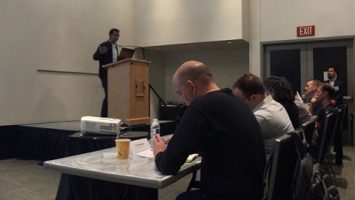
Keele University in England will soon become Europe’s first “at scale”, multi-energy vector living laboratory, testing real-world energy infrastructures and technologies onsite. The project – called the Smart Energy Network Demonstrator (SEND) – has been funded from the England European Regional Development Fund and from various government departments. Plans are for more than 24 substations will be digitalized, 1,500 smart meters installed and 5MW of renewable energy placed across the campus.
Keele University’s Deputy Vice-Chancellor Professor Mark Ormerod said, “The Smart Energy Network Demonstrator (SEND) is a fantastic example of innovation delivering really tangible results for Keele University, businesses and the wider UK economy, as well as major societal benefits. It puts Keele and our campus at the forefront of the new, more sustainable, energy landscape – the technology being deployed represents a revolution in smart energy technology for UK universities…there is real momentum building in the area for developing intelligent, sustainable and low carbon energy networks as a catalyst for economic growth within the city and beyond.”
Siemens Corporation will oversee the SEND, which will track smart analysis of energy consumption on campus, enabling systems to react to the demand and energy needs of individual buildings. The project will also offer businesses the chance to develop and test renewables and smart energy technologies on campus.
“This landmark project will provide a society-based demonstrator for the research community, the energy industry, and local communities,” Siemens Energy Management’s managing director Carl Ennis said. “It will be at the center of a smart and flexible network of energy supply and storage – which will reduce emissions, improve security of supply to the campus and be open to further innovation from the academic community. We are seeing decentralized energy as a key trend in the UK and are delighted to work with an innovative partner such as Keele University to drive this intelligent energy technology forward.”


